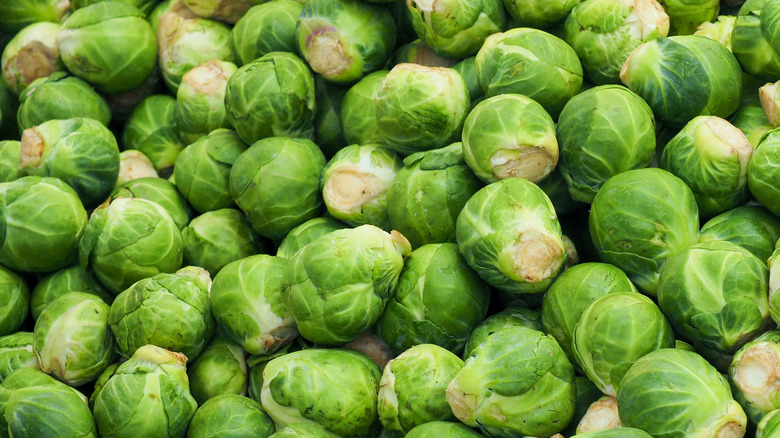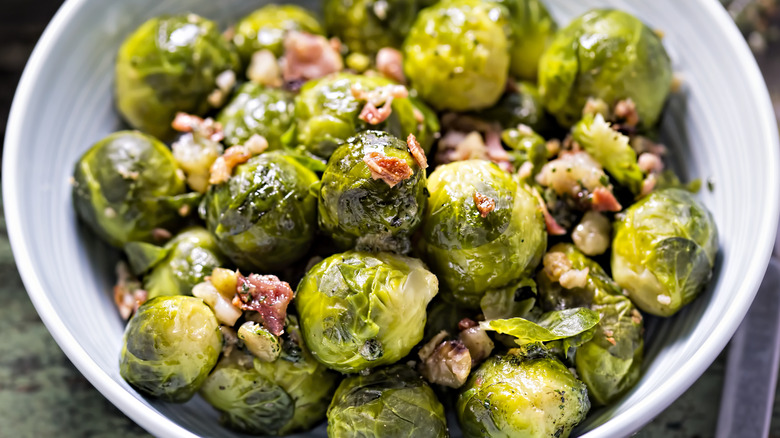Hate Brussels Sprouts? Your Genes Could Be To Blame
Brussels sprouts are one of those foods that we seem to either love or hate with no in-between, depending on our life stage. Toddlers and adolescents, for example, are notorious for making "yucky" faces when they're fed Brussels sprouts for dinner. But years later, many adults' taste buds have fully matured, and they end up craving them. There are a ton of ways to prepare cabbage's tenderhearted cousin. For example, you can dress them up with a bit of salt, pepper, olive oil, bacon, or other savory spices. You can also pop them in the oven or steamer, and you've got yourself an incredibly wholesome starter or side dish. However, this isn't the case for everyone.
As it turns out, if you absolutely loathe the taste, texture, and/or smell of Brussels sprouts, it may have little to do with your mealtime agony from when you were a kid. In fact, according to Healthline, it very well could have to do with your DNA. Keep reading for a brief biology lesson on why an aversion to Brussels sprouts is a real thing.
Your distaste for Brussels sprouts could be genetic
You've probably heard the term "supertaster." And perhaps you are one! This type of person has extra taste buds and receptors on their tongue, thereby making their perception of flavors stronger than the average person's. Studies have shown that most supertasters have the TAS2R38 gene, which essentially increases their sensitivity to bitter-tasting foods, such as broccoli, coffee, spinach, collard greens, dark chocolate, and of course, Brussels sprouts (via Healthline). It's estimated that about 25% of Americans fall within the supertaster category, according to the National Institute on Deafness and Other Communication Disorders.
Brussels sprouts contain sulphuric compounds called glucosinolates, which also occur in naturally sharp-flavored root veggies such as horseradish and mustard. So, when many supertasters take a bite out of a Brussels sprout, they experience a harsh, sour sensation rather than a mellow, nutty flavor. The genetic mutation that affects 1/4 of the population is believed to have developed way back when our ancestors foraged for food and needed to veer away from plants that were toxic to humans (via Daily Mail). "[Supertasters] experience the bitter taste up to 60 times higher than someone with an average number of taste buds," Dr. Lisa Methven, a professor of food and sensory sciences at the University of Reading in England, tells BBC. "These people have a heightened perception of the bitter taste, and this is due to their genetic makeup."

